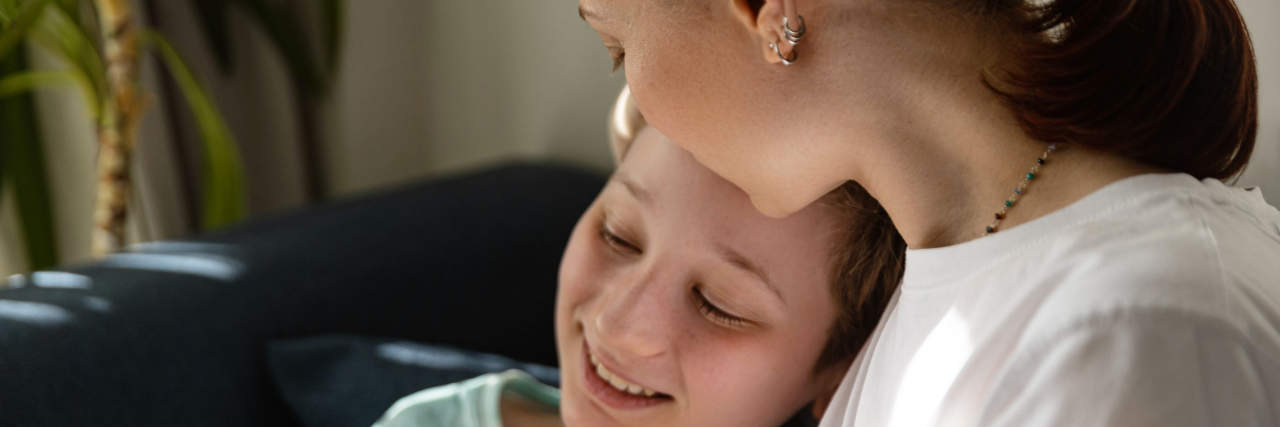The room is dark and cold. I hear the familiar hum of an airway clearance machine in the next room overcoming the thunderstorm of white noise and air conditioning. It is 3:00 a.m., and the room next door belongs to my 12-year-old son. My kids have chaotic sleep patterns. Years of medications, hospital stays, and one parent who can’t sleep mean someone is always awake. I hear the choking sound of a mucus-filled cough. My throat catches, and without even being fully awake, I stumble out of bed to peek in the next room. My son, who is wise for his 12 years, reminds me, “Mom, this is supposed to make me cough.” I’m proud that he knows how to handle his own middle-of-the-night airway challenges now, but I don’t think I will ever sleep easily after hearing that familiar wake-up cough.
It used to be easier, and it also used to be harder. My middle two children both have cystic fibrosis, so they’ve had extra routines from infancy. Extra nutrition, pancreatic enzyme tablets poured into apple sauce and spooned into gummy mouths. Cupping my hands and clapping my children’s’ backs while holding a nebulizer (and always getting an inadvertent dose of any medication they took), and wrestling a wiggling, often annoyed infant is what treatments used to look like. Changing a diaper quickly so that the familiar “baby boy shower” during a diaper change did not fountain upward and damage the PICC line in my baby’s head. Silly and serious memories were one and the same.
With the exception of enzymes, medicines were either inhaled or liquid. Regardless of the medications’ method of absorption, one thing was constant: I ran the show. I was meticulous and anxious, not wanting to get anything wrong. There was so much to remember and so much to try to shoehorn into a “typical” childhood. I made the routines, I kept the routines, and with them, I maintained some vague sense of control in the face of an uncontrollable and uncertain disease that hovered over us. Like an unwanted cloud, ready to rain, rage, shade, or tornado at will, the disease remains. I stood ready to try to control the consequences of whatever this perpetual phantom storm.
Then suddenly, it wasn’t my show anymore — but it never really was. My two children aren’t babies anymore. They have entered the teen years — or nearly so for my younger child with cystic fibrosis. They’re in the double digits — pending adulthood. I still fill the pill boxes. I make the refill calls. I remind my children of what to do all day long. But treatment challenges are no longer something I can shoulder for my kids. I grieve that I can no longer protect them from the time their condition takes each day — the responsibility of airway clearance, pills, inhalers, and breathing treatments.
In my sorrow, I look up and see my children’s faces. They have this handled. They know what to do — but it still sucks. The irony of cystic fibrosis is that a healthier life is often a harder treatment responsibility. The teen years bring new challenges, like diabetes, but CFTR modulators bring me hope — beautiful glorious hope. These two amazing young people — like so many others before them — have got this handled. Whatever that storm cloud throws out, they have trained for it since birth.
This moment has been coming, and now, I have to let go. I remember the preschoolers swallowing pills, the 8-year-old who was able to handle his own tube feedings after watching us, the 10-year-old who could talk to his nurses expertly about his fear of getting an air bubble in his IV line. My children know what to do. They will have my support and any help they will need for the rest of my days. The adage “Do for, do with, cheer on” rings true.
So I lay back down in bed, closing my eyes to my son’s hum and cough. I don’t sleep, but as I listen to the familiar lullaby of a compressor, I grow into my new role in my children’s lives.
Getty image by Anastasia Dobrusina.

